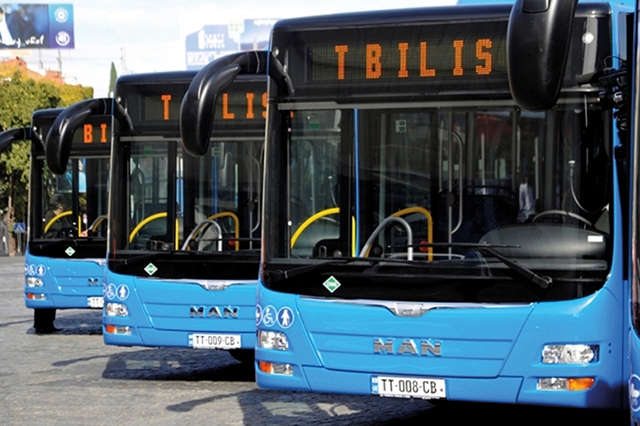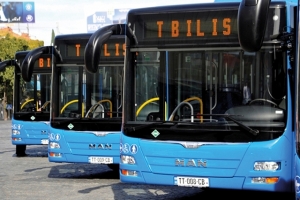State Audit Finds Flaws in Tbilisi Transport Company
The State Audit Office (SAO) of Georgia released its report on the Tbilisi Transport Company, which notes that the company does not comply with the basic requirements of the Labor Code of Georgia, according to which the working time of employees should not exceed 48 hours per week.
The agency found that the overwhelming majority of bus drivers in Tbilisi worked overtime in 2017-2018, which in turn also poses a threat to passengers.
The document says that the company, whose total revenue is GEL 548,138 ($191,992) thousand and expenses GEL 386,858 ($135,501) thousand, makes the drivers do overtime, which can be risky in terms of occupational safety.
SAO also says that in 2017, 1379 bus drivers of a total 1398 worked more than 48 hours per week, and in 2018, 1420 bus drivers did overtime, out of a total 1438 drivers. Most of them worked 17 hours or more per day.
The audit underlined that increasing the working hours of those categories of employees may pose risks to the safe transfer of passengers.
“Overtime is also financially unprofitable for the company because when working more than the set 48 hours a week, the employees’ hourly wage rate is increased by 25%,” the report reads, adding that in 2017-2018, the company paid GEL 1,310.9 ($459.16) thousand just in increased tariffs.
SAO added that due to the improper functioning of the control mechanisms introduced by the Tbilisi Transport Company and the City Hall in 2017-2018, City Hall had wasted a significant amount of budgetary resources and reimbursed preferential travel costs inflicted on the company due to the violation of existing payment rules.
“Due to shortcomings of the travel tariff system and the management system of the company services, the proper functioning of the travel discount system has not been ensured,” the agency concluded.
The document says the City Council’s legal act does not specify how many times during a 90 minute period it is allowed to travel for free by travelcard after making the first payment, which has caused problems. According to SAO, after paying for one kind of public transport, the cardholder can obtain multiple free rides when scanning the card on different card machines.
“This flaw of the payment mechanism is actively used by both preferential and standard travelcard holders. Specifically, the interested person uses different payment methods to get benefits by scanning their travelcard at a bus service machine located near a metro station and thereafter obtaining a free onward trip,” the agency stressed.
The audit concluded that the transport company has not exercised sufficient control and has not introduced proper measures to prevent possible violations when obtaining free travels. In addition, it says the tariff system established by the City Hall, and the management mechanism of the company, contain shortcomings and cannot ensure the proper functioning of the travel discount system.
“Because of these shortcomings, Tbilisi City Hall had to pay GEL 414 ($145) thousand to cover the financial damage inflicted due to violations of preferential travel benefits in 2017-2018,” reads the audit report.
SAO added that as a result of the company management’s decision-making process, the transport company suffered significant additional costs in 2017-2018. In particular, the company unlawfully dismissed employees from their posts and based on court rulings had to pay compensation to these people without fully exercising the company’s interests.
By Tea Mariamidze
Image source: Georgian Journal











